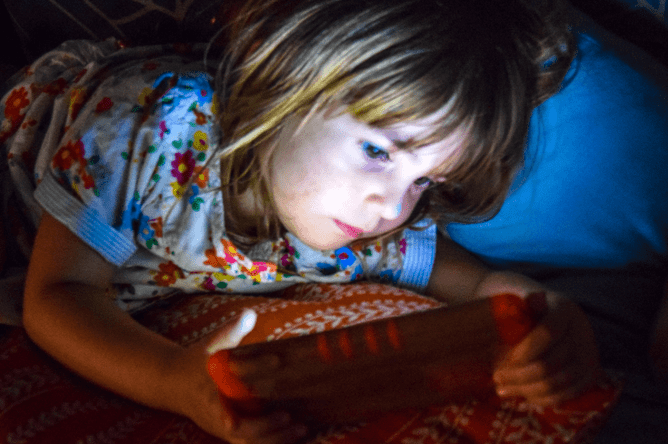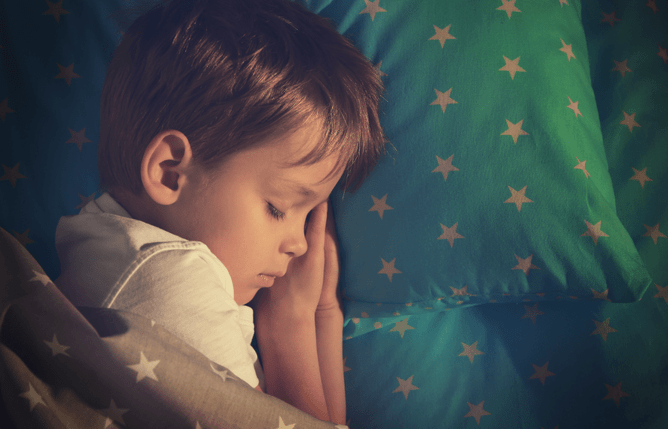The importance of sleep in helping children with ADHD
Good sleep is so important for good health in all children - and their families - and even more so for kids with Attention Deficit Hyperactivity Disorder (ADHD). The interaction between sleep and ADHD goes both ways; with the symptoms of ADHD both contributing to and being exacerbated by sleep issues. So addressing bedtime concerns can lead to significant improvements in both sleep and ADHD symptoms. Here I take a brief look at why sleep is essential for managing ADHD in children plus offer some practical strategies to improve sleep habits.
Understanding the sleep-ADHD connection
Children with ADHD often deal with various sleep disturbances, including difficulty falling asleep, staying asleep, and/or waking up too early. There are a few reasons for this, including:
1. Physiological influences: ADHD is associated with dysregulation of neurotransmitters such as dopamine, which not only affects attention and impulsivity but is also involved in regulating sleep cycles.
2. Medication side effects: Common medications used to treat ADHD, such as stimulants, can interfere with sleep by increasing alertness and delaying sleep onset.
3. Behavioural Issues: Children with ADHD can struggle with regular bedtime routines due to impulsivity or hyperactivity.
These sleep challenges can exacerbate ADHD symptoms, creating a cyclical problem where poor sleep leads to more severe symptoms, which in turn leads to worse sleep.
The impact of poor sleep on ADHD
Lack of adequate sleep can have a few different effects on children with ADHD:
- Increased hyperactivity and impulsivity: Sleep deprivation can lead to what looks like heightened levels of energy in some children, manifesting as increased hyperactivity. Sometimes when your kid is jiggling about/can't sit still, it's their effort to stop themselves from feeling sleepy.
- Decreased attention span: Insufficient sleep affects cognitive processes, making it harder for children to concentrate during school.
- Emotional instability: Sleep is crucial for emotional regulation. Lack of sleep can result in mood swings, irritability, and increased frustration. Those big feelings that are so hard to cope with might be a little bit easier to handle with some extra zzzz's.
Given these impacts, improving sleep quality and quantity can significantly enhance the management of key ADHD symptoms.
Strategies for improving sleep in children with ADHD
You don't need me to tell you that improving sleep for children with ADHD can be a tricky business. And you've probably already tried what feels like all the different tips and tricks. It may take a multi-faceted approach that includes lifestyle changes, environment modifications, and sometimes medical intervention. And its also worth revisiting ideas that you might have tried in the past now that your child is in a different developmental stage. Here are some effective strategies to try:
1. Establish a consistent bedtime routine
Creating and sticking to a regular bedtime routine helps signal to your child’s body that it is time to wind down and prepare for sleep. The routine might include:
- Setting a specific bedtime that is adhered to every night, even on weekends.
- Include relaxing activities before bed, like reading books or taking a nice warm bath. A short massage after bath time can be a lovely way to end the day and get ready for sleep.
2. Create a good sleep environment
The bedroom can significantly influence the ability to fall and stay asleep. Consider the following adjustments:
- Ensure the bedroom is dark: Use blackout curtains to block out external light sources, if needed.
- Keep the room cool: The ideal temperature for sleeping is between 15-19 degrees Celsius.
- Minimize noise: If external noises are an issue, consider using a white noise machine.
3. Limit screen time
Exposure to screens (TVs, tablets, smartphones) before bed can interfere with the body’s natural sleep-wake cycle due to the blue light emitted from screens. Implement these guidelines:
- Enforce a no-screen policy at least one hour before bedtime, minimum.
- Encourage relaxing activities that don't involve electronics eg reading, drawing, listening to music. Audiobooks are great option for those nights when you as the parent are just exhausted. Or for that master negotiator kid who needs more story time than you can cope with on a regular basis.
4. Address dietary factors
What a child eats and drinks can affect their sleep:
- Avoid caffeine and sugar close to bedtime as they can increase energy levels and delay sleep.
- Not too full, not too hungry. Too full and it can be hard to get to sleep, and by hungry I mean that if blood sugar dips overnight this can be one cause for night waking.
- Nutritional adequacy of the diet. Is your child getting enough of the nutrients needed to promote good sleep, for example magnesium?
5. Consider physical activity
Physical activity can help expend excess energy and make it easier for children to fall asleep. However, timing is key:
- Encourage exercise and play earlier in the day rather than close to bedtime.
6. Manage medications
If medication is part of the child’s ADHD treatment plan, the timing could affect sleep:
- Consult with your prescribing doctor to discuss the timing of medications and whether they might be impacting sleep.
7. Teach relaxation techniques
Teaching children how to relax can help them wind down before bed:
- Practice deep breathing or gentle yoga as part of the bedtime routine.
- Use guided imagery or meditation designed for children to help them relax mentally and physically. A speaker in your child's room which plays a guided meditation can be a good option.
8. Investigate root causes for sleep issues
I always start with the basics above, and then move on to considering things such as:
- Heavy metal toxicity, which can impact sleep by interfering with absorption or utilisation of nutritients needed for sleep.
- Physical therapies such as chiropractic or osteopathic adjustments can help with sleep issues. In my practice I offer NIS (Neurological Integration System) which has some protocols that may remove blocks to restorative sleep.
Restful nights: a holistic approach
For children with ADHD, quality sleep is more than just a routine necessity; it’s a vital component for managing their symptoms effectively. By gradually implementing some of the strategies outlined above you can help your child get their best sleep, and in turn, help reduce their ADHD symptoms. This can lead to significant improvements in daily functioning and overall quality of life.



